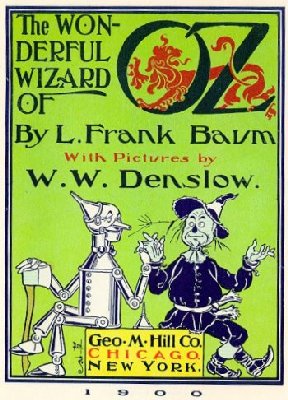The Wonderful Wizard of Oz by L. Frank Baum
Yes, the original. This book is an exceptionally simple read. It was, after all, written for children; however, there is a lot more going on. You know how Animal Farm is an allegory for the rise of Soviet socialism in Russia, and Harry Potter is an allegory for the global "War on Terror"? This novel is a detailed snapshot of politics in the late 19th century in America.
Yes, really. I'm dead serious. This will also give you a fairly reasonable idea of how we're going to look at not only the art of the writing but also the context of the novel.
Your version of this cover may vary, but you need to pick up the UNABRIDGED version. You do not need to pick up the version with Denslow's original illustrations, but it's pleasant to have.
How to Read Literature Like a Professor by Thomas C. Foster
We will use this book as a framework for the exploration and explication of the novels and other readings for our IB Literature A class. The text is actually kind of interesting, if academic, so feel free to read ahead if you like. HtRLLaP is on quite a few short lists of books for successful college and IB students alike
There may be some incoming seniors and/or graduating seniors who may be willing to part with their copy if you are particularly persuasive, and some of them were really good about keeping notes in the margins....
Both of these books can be found online from Amazon.com and the like, but they can also be found at Half-Price Books and Lucky Dog Books locally.
Please note that students (ie, incoming IB English juniors at Woodrow Wilson) should possess both books and have the novel read by the start of the fall semester 2016-2017; students should further anticipate that there will be a diagnostic exam based on the material for the purpose of figuring out approximately your skill level and potential needs.
Have a great summer. If you need to contact me with any questions, feel free to drop me a line at:
pmcghee@dallasisd.org





